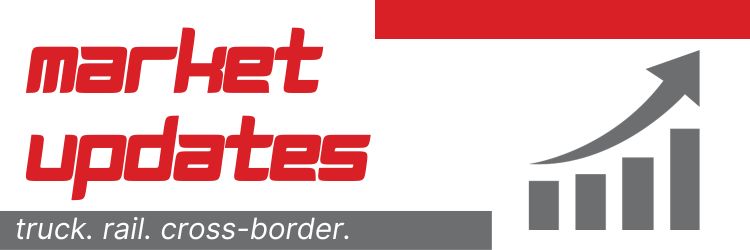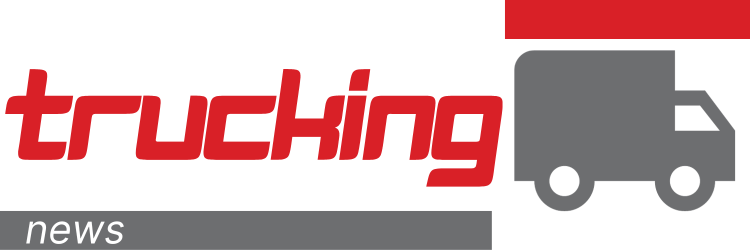Commerce Express Weekly Road Map:
January 16th, 2024
Keeping you informed on the latest news/insights in our industry.

Trucking –
- As of January 8th, the national average price of diesel is $3.828.
- Seeing a 4.8 cent decrease compared to the week prior.
- Class 8 sales in December (23,390 units) falls for the fifth straight month
- However, all of 2023 sales ended nearly 5 percent higher compared to 2022.
Rail –
- Port of Indiana-Jeffersonville will be adding four miles to an already existing 11-mile rail network, plus two loop tracks that are all part of a $24 million investment into improvement projects.
- Rail capacity continues to remain plentiful, and rail transits are continuing to be at five-year averages, some even higher.
Cross-Border –
Mexico:
- Mexico remains the top U.S. trade partner in November and has been for the past 10 out of 11 months, per data from the U.S. Census Bureau.
- Port Laredo in Texas was the number one ranked U.S. trade gateway in November – for the 10th straight month.
- The Mexican Tax Authority will be enforcing the new Carta Porte compliance rules starting January 1st. This is for all modes of transportation on any cross-border and/or Mexico domestic shipments.
- Additionally starting January 15th, hazardous material shipments will be required to provide Mexico Hazardous Packaging Code and Mexico Unit Packaging Code, BNSF Railway said in a statement.

The Differences of Double Brokering vs. Co-Brokering
Co-brokering is a popular method used in the industry, which is when a broker or fleet clearly re-brokers a load to another entity. This clear transfer of the load allows the parties to have clear visibility of the process.
This is the biggest difference between co-brokering and double brokering – which occurs without any visibility or permission from the original shipper or broker. Without that important visibility of who is handling the load, it can be a recipe for disaster.
You can run into a multitude of issues such as your shipments being held “hostage”, issues with insurance and the potential for your shipment to go missing.
Staying vigilant and aware of fraudulent practices is crucial for your supply chain. Impacts can be felt not just in the relationship/trust side of situations but can also have a critical financial impact as well.
Unified Carrier Registration Fees Expected to Increase in 2025
Starting in 2025, UCR fees will be increased by 25 percent compared to fees this year – ranging from $9 and $9,000 – the FMCSA said in a statement.
Fees in 2024 have been reduced by 9 percent – ranging from $4 and $3,454 per entity, depending on the number of vehicles owned/operated, as Transport Topics reported back in March last year.
The UCR program requires people or companies that operate commercial motor vehicles in interstate or international commerce to register their business with a participating state and pay an annual fee based on the size of their fleet, as defined by WCR Permits.
The collection of these fees then get distributed in safety enforcement programs every year to the 41 states that participate in the UCR agreement.
Commerce Blog

Sweeping legislation from the Department of Labor was enacted by the Biden administration last Tuesday. The labor rule is designed to prevent workers from being misclassified as independent contractors.
The final ruling strokes a broad brush across America’s labor force. From home health care providers to Uber drivers, previously defined independent contractors could be reclassified as employees. This means they’d be entitled to a minimum wage and overtime pay, while eligible for benefits (insurance, social security, etc.,)—guarantees otherwise not available to workers under independent contractor status.

California Proposed Budget Includes Funding for Transportation Projects
Nearly $20 billion for transportation projects is being proposed in California’s state budget. Some of the projects, per Railway Age, include:
- $7.7 billion for high-priority transit and rail infrastructure projects to improve rail and transit between state and local services to decrease traffic congestion and greenhouse gas emissions.
- 1.2 billion towards improving goods movement on rail and roadways at port terminals including railyard expansions, new bridges, and zero-emission modernization projects.
- $350 million for grade separation projects that support critical safety improvements and expediate the movement of traffic and rail separating the vehicle roadway from the rail tracks.
Total Weekly Rail Traffic for the Week Ending January 6th, 2024
- Total U.S. weekly rail traffic for the week ending January 6th, was 417,257 carloads and intermodal units – up 2.3 percent compared to the same time last year, per AAR data.
- U.S. weekly intermodal volume was 209,081 containers and trailers – up 3.7 percent compared to last year.
- Chemicals, farm products (excluding grain and food), and grain all saw increases. While motor vehicles and parts, coal and non-metallic minerals all saw decreases.
- North American rail volume in the first week of this year was up 6.6 percent from last year, at 611,146 carloads and intermodal units.



Recent Comments